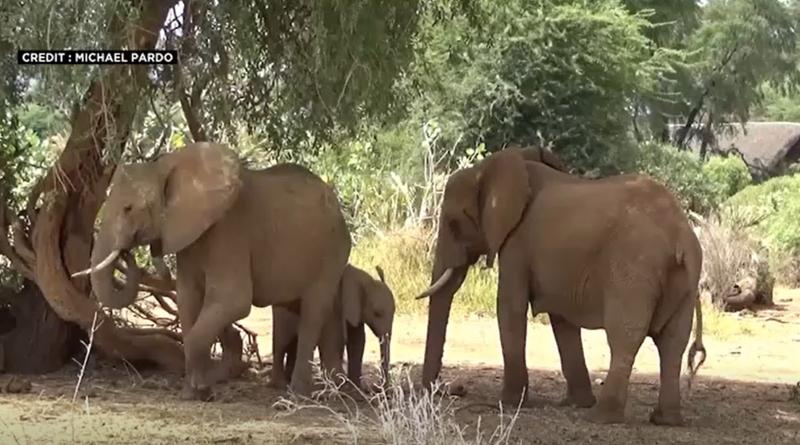New study finds African elephants call each other by unique names

African elephants respond to individual names, one of the few wild animal species known to do so, according to new research published in Nature Ecology & Evolution on Monday.
These unique names are in the form of complex low rumbles that can be heard over long distances across the savannah.
Biologists from Colorado State University's Warner College of Natural Resources used machine learning to detect them in recordings made in Kenya's Samburu National Reserve and Amboseli National Park.
They then tested their results by playing the sounds back to individual elephants, who responded more energetically – flapping their ears and lifting their trunks --- to those that contained their name.
Professor and co-author, George Wittemeyer, said they had to get close to the animals to record in the sounds in all their complexity.
“They speak infrasonically and sonically. About half of the sound in their call is below our level of hearing, so we actually cannot hear it. So we had to use this special microphone to record these calls,” he said.
The researchers followed the elephants in jeeps to observe both who called out and who appeared to respond. For example, if a mother called to a calf, or a matriarch called to a straggler who later rejoined the family group.
"Elephants do these really interesting behaviours where sometimes when they're in a big group of females or a mate check of a group will give a call. The entire group will respond, they'll group up around her or they'll follow her,” said Wittemeyer.
“Then at other times, she gives seemingly a very similar call and nobody will respond, nobody will react, except for a single elephant. So that indicates that they have a means by which to communicate to who they want to talk to."
It is extremely rare for wild animals to call each other by unique names.
The so-called “naming” animals – like dolphins and parrots – are also able to learn unique new sounds throughout their lives, a talent that elephants also possess.
"There’s a lot of potential to learn more about elephant calls. I think we’ve just scratched the surface of just how complex their communication is," said the report’s lead author, Michael Pardo, who is a postdoctoral researcher at the university.
Wittemeyer said they know there is a lot of communication going on in this highly social and vocal species, but they have not been able to decipher much yet.
"It's quite complicated, the structure of their calls and we know that if we could get inside into what they're saying we could really get a new perception on how they think," he said.



